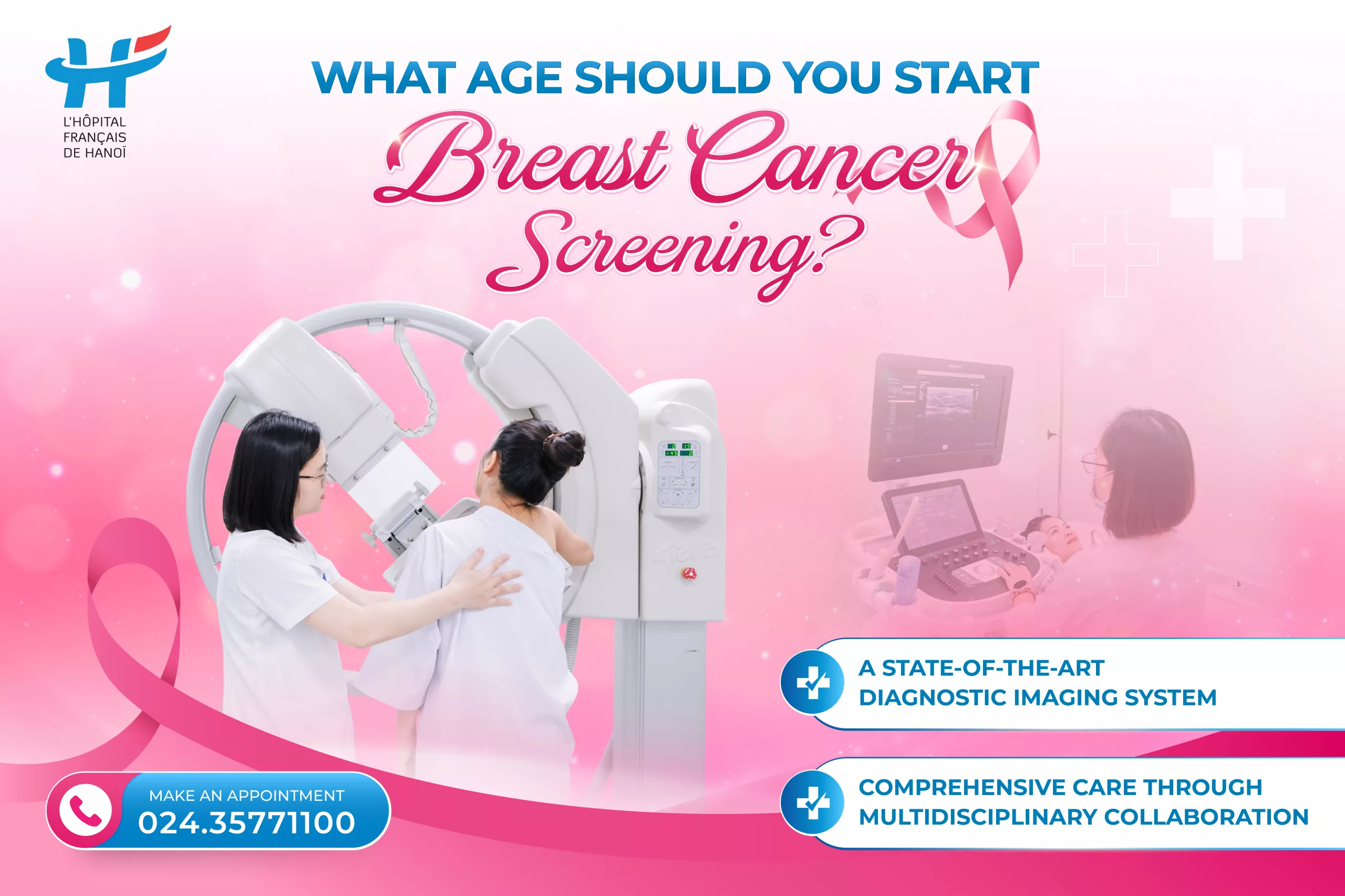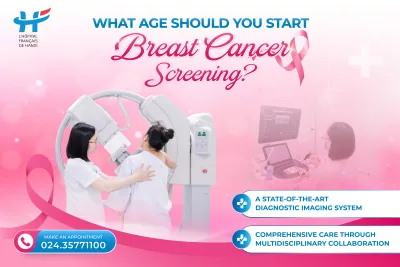Early detection is key: At Stage I, the 5-year survival rate can exceed 90%, while in metastatic stages, it drops to below 30%. That’s why age-appropriate and risk-based screening is crucial.
According to Dr. Cao Thi Thuy Ha, Deputy Head of the Obstetrics & Gynecology at Hanoi French Hospital, breast cancer screening is recommended for all women, with specific guidance based on their risk group:
Women at Average Risk (Most women: no family history, no BRCA mutation, no prior chest radiation)
- From age 25: Begin regular clinical breast examinations every 1–3 years.
- From age 40: Mammography is considered the gold standard. Frequency: every 1–2 years depending on international guidelines (USPSTF, ACS, ESMO).
Women at High Risk, including:
- Have a first-degree relative (mother, sister, daughter) with breast or ovarian cancer.
- Carry BRCA1/BRCA2 or other hereditary mutations (e.g., Li-Fraumeni, Cowden syndromes).
- Received chest radiation therapy between ages 10 – 30.
- Have dense breast tissue.
Recommended screening plan:
- Start screening between ages 25 – 30.
- Combine annual breast MRI with mammography.
- If a family member was diagnosed at a young age, begin screening 10 years earlier than their age at diagnosis (but not before age 30).
- For women with dense breasts: annual mammography combined with breast ultrasound is advised to increase sensitivity.
About optimal timing for screening, according to Dr. Ha:
- Avoid screening right before or during menstruation, as hormonal changes may cause breast tenderness and affect image accuracy.
- Best time: Between day 7 and day 14 of the menstrual cycle (counting from the first day of menstruation).
Seek medical attention immediately if you notice:
- A new lump or any localized thickening in one breast.
- Changes in breast shape, size, or contour.
- Alterations in the nipple such as crusting, ulceration, redness, or inversion.
- Spontaneous nipple discharge that is brown or bloody.
- Redness, dimpling, or changes in breast skin texture.
- Persistent, localized breast pain.
—————
HFH is a leading hospital in breast cancer screening, equipped with state-of-the-art imaging and diagnostic systems that allow personalized screening plans for every patient:
- Breast Ultrasound: Captures images of areas not clearly visible on mammography; ideal for younger women and those with dense breast tissue.
- Giotto IMS Mammography System: Uses low-dose X-rays to visualize internal breast structures; sensitivity ranges from 80–94% and increases with age.
- Siemens Breast MRI: Highly sensitive for detecting abnormalities not visible on mammography or ultrasound; recommended for women at high genetic risk.
- Genetic Testing (BRCA1, BRCA2): Identifies hereditary breast cancer risk.
- Vacuum-Assisted Breast Biopsy (VABB): A minimally invasive, highly accurate procedure that can replace surgical biopsy to avoid unnecessary surgery.
After screening, a multidisciplinary team – including specialists in Gynecology, Radiology, and Oncology – collaborates to develop a tailored management or treatment plan for each patient.
For consultation or breast cancer screening appointments at Hanoi French Hospital, please contact our HOTLINE: 024 3577 1100, message us via Facebook (Hanoi French Hospital) or Zalo OA: zalo.me/2008009049335817955.


